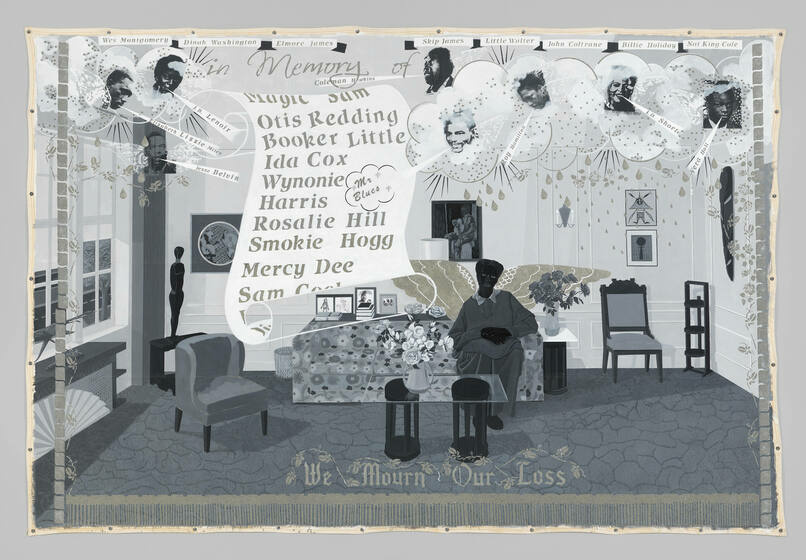From the simplest stub of a toe to the genocide of the innocent, pain exists. Our idealistic perception of reality has left us begging for a reason behind life’s divergence from perfection. For our entire history, we have pondered on the justification for the existence of suffering. However, what is suffering? My definition of suffering goes along with the conceptualization proposed by Jennifer Hawkins, associate research professor of philosophy at Duke University. Suffering is outside of a specific emotion or feeling, but a broad affective state. While she considers that happiness and misery have a definite symmetry, they are both on the same spectrum of psychological state, she reckons that happiness has a severely disproportionate relationship with misery. These two “emotions” distinctly differ in weight; they do not have a proportional influence. They are a transcendent phenomenon; the two concepts are not emotions but broad affective states.
A state of mind, or broad affective state, are specific mental dispositions that severely affect all other possible emotions that an individual could feel throughout the spectrum. Happiness and suffering are psychological contingencies that acutely jeopardize the individual’s evaluative perspective. A person who is suffering can feel joy just like a happy person can feel pain, but due to the specific state of mind, their ability to assess certain situations is altered drastically.
However, if both concepts of happiness and suffering are measured using the same criteria, their capabilities are significantly disproportionate. The parallel level of happiness would need to be considerably more drastic than the one of suffering to equal the influence between the two. Suffering’s power is greater than that of its contrary. For instance, it is difficult to conceive a contrary level of happiness equal to the suffering an individual faced during the Holocaust: The physical and psychological agony experienced during every waking moment, the endless questioning if every person you hold dear is dead, alive, or suffering the same fate. The equivalent degree of happiness is unfathomable. These broad affective states are the pillars of human life, living to pursue one while avoiding the other. Sadly, one state is far more paramount than the other.
The essence of this interpretation is how suffering and happiness transcend the term emotion. These frames manipulate our ability to live and interpret reality. Moreover, our entire existence seems to revolve around pursuing or evading one of these poles. However, the disparity in psychological magnitude between the two cannot be overlooked. The impact of happiness is minuscule compared to that of suffering.
The pursuit of happiness has generally become the status quo for the drive of our very existence. Success, fame, fortune, family, love, and fulfillment get most of us out of bed in the morning. However, the pinnacle of happiness is obscure; we do not know what happiness really means. Our thirst for happiness seems impossible to quench. We are never satisfied with what we have; we always look for more. On the contrary, suffering creates an abyss that may imprison oneself. The desperation to escape this pit outweighs the hunt for bliss.

Regardless of what suffering means, we can recognize the legitimacy of its existence. This brings up further questions that humanity has been asking itself for millennia. Religion established the ruling, and still common, justification for thousands of years. Until relatively recently, the book of Genesis was the answer to these doubts for billions across the globe. Adam and Eve, the first humans in existence, lived in paradise, free from sickness, pain, or sorrow. Due to the “original sin,” we have been burdened with suffering, pain, and all displeasure. However, the legitimacy of this argument weakened immensely during the enlightenment and the emergence of Darwin’s theory of evolution. After years of research and debate, the legitimacy of evolution has been solidified. Therefore, as evolution directly contradicts and disproves the story of Genesis, it can no longer rationalize the existence of suffering.
While there are endless theories that seek to explain sorrow, I consider that the explanation is quite simple. We ask ourselves the meaning behind a concept, ponder its existence, and endlessly pursue answers. However, although constant questioning and the pursuit of knowledge for virtually everything is pivotal for developing society and human progress, some phenomena have no answer. There is no meaning behind suffering. The chaotic life we experience is abundant with pain and destruction. We seem to need a justification for a concept that is predominant in the natural world. The necessity for an answer is absurd when certain things merely exist because they exist. The world functions as a constant struggle for survival; there are no other reasons behind suffering other than simply nothing. We formulate these doubts and demand explanations for aspects that stray from what we consider an ideal world. We do not live in a utopia, yet we cannot fathom accepting that pain has no intended purpose. Trying to find specific rationality that coincides with our already pre-established principles is redundant, leading to nowhere but more questions and more false justifications.
These questions will always remain unanswered. Even though we have pondered and formulated theories with a significant caliber of critical rationality, we should not stray away from contradicting their positions in favor of more straightforward rationalization. There is no reason why suffering exists. We reside in an unjust world where darkness finds its way to take root. It is useless to insist on a logical purpose behind its existence. Some questions have no answer, as they originate from our vision of what perfection would be. We must accept the flaws of life and focus on what to do about them. The only thing that actually matters is learning to fight through it and to grow because of it.
Featured image by: Yaopey Yong // Unsplash







